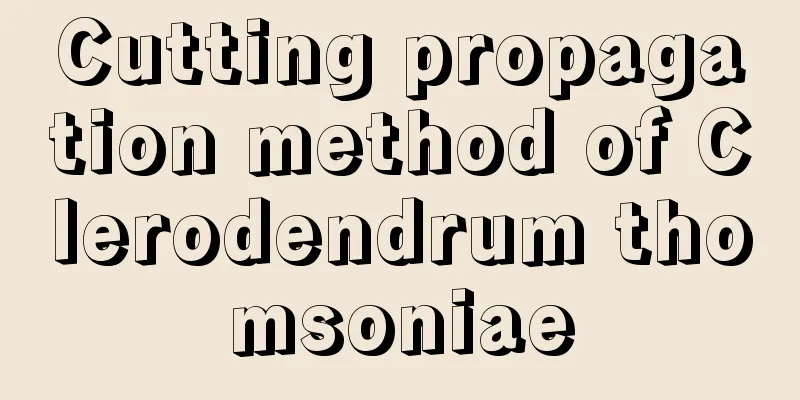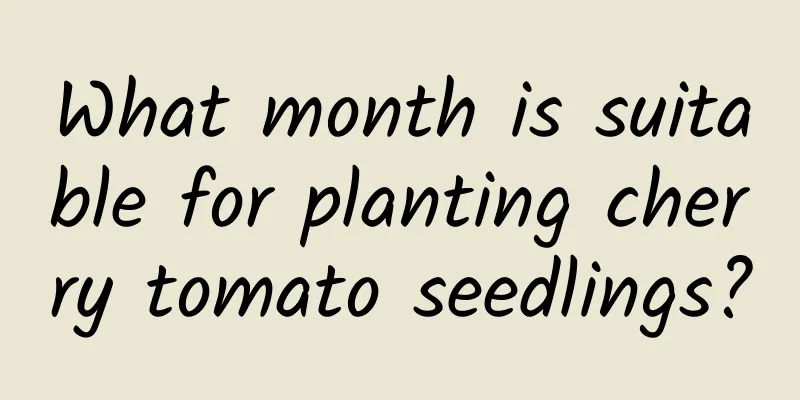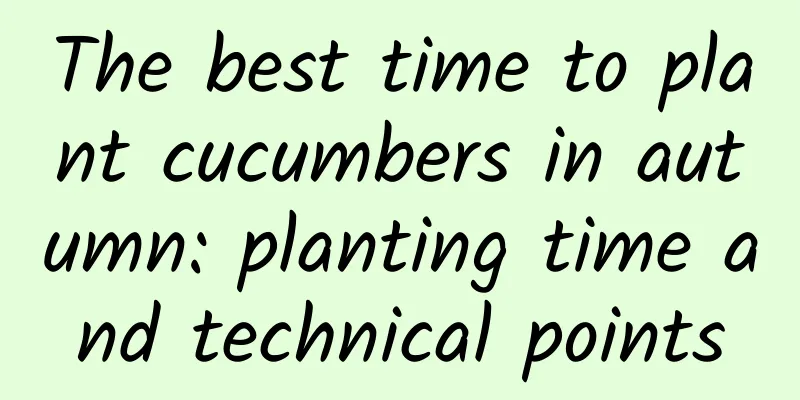Cutting propagation method of Clerodendrum thomsoniae

|
Clerodendrum thomsoniae is a common indoor foliage plant. It belongs to the Asparagaceae family and is native to West Africa. The propagation of Clerodendrum thomsoniae is usually based on cuttings. So what is the method of its cutting propagation? Let’s learn more about it below. All"> 1. Cutting time Cutting propagation of Clerodendrum thomsoniae is usually carried out from May to June every year. Because the temperature conditions at this time are more suitable, it is conducive to its rooting and development. 2. Preparation before insertion Prepare mature, healthy Clerodendrum thomsoniae plants and a container suitable for cuttings. The container can be a small pot, flower pot or cutting tray. At the same time, prepare suitable cutting media, such as vermiculite, perlite , leaf mold, etc. 3. Cutting selection There are many methods for propagating Clerodendrum thomsoniae by cuttings, such as branch cuttings, bud cuttings, root cuttings, etc., with branch cuttings being the main method. For branch cuttings, you can generally choose the top tender branches of healthy and disease-free branches, or you can cut the old branches at the bottom into 8-10 cm stem segments as cuttings. Before cutting, remove the bottom leaves of the cuttings and cut the cut into an inclined surface to increase the water absorption area. 4. Cutting operation Dip the bottom of the cuttings in rooting powder and insert them directly into the soil at a depth of about two-thirds of the length of the cuttings. After planting, compact the surrounding soil and water it thoroughly. 5. Maintenance after insertion (1) Light: Place the cutting container in a bright location but away from direct sunlight. Clerodendrum prefers full light, but too much sun may cause leaf burn. (2) Watering: Keep the cutting medium moderately moist, but avoid overwatering. In the weeks after cuttings, you can reduce watering moderately to avoid rotting of the cuttings. (3) Fertilization: After the grafting of the Chinese giant hyacinth, no fertilizer is needed before it takes root. After it takes root, appropriate amount of diluted liquid compound fertilizer can be applied once every half a month. (4) Repotting and pruning: After the cuttings are successful, repotting can be done in a timely manner. Choose soil with good air permeability and drainage. At the same time, appropriate pruning should be carried out according to the growth conditions of the plants to promote their healthy growth. In general, the method of propagation of Clerodendrum thomsoniae by cuttings is generally through branch cuttings. First, choose the appropriate time for branch cuttings, then choose healthy branches of the current year for cuttings, and finally do a good job of post-maintenance.
|
<<: The steps of cuttings of the fortune tree and other propagation methods
>>: Can the fortune tree be propagated by cuttings? How to propagate by cuttings?
Recommend
Cultivation methods and precautions of Tortoiseshell Peony
1. Maintenance methods 1. Flower pot selection: T...
How to propagate crabapple by cuttings
Begonia is famous for its delicate flowers and el...
How to store daffodil bulbs after they bloom
Should the bulbs be thrown away? When many people...
When is the best season to plant rapeseed? When to plant rapeseed and what are the steps?
It is best to choose loose and well-ventilated so...
How to prune jasmine into a tree shape
1. Topping and pinching If you want to prune it i...
How to deal with the water-soluble succulent Huangli
1. What is chemical water Water melting is a phen...
How can succulent plants adapt to the pot quickly? What are the signs that they are not adapting to the pot?
1. How to adapt to the basin quickly 1. Root prun...
The basic form of octopus orchid
The octopus orchid, also known as the scallop orc...
Is agave poisonous? Can it be grown at home?
Is agave poisonous? Agave is a poisonous plant in...
Causes and treatments for yellowing cactus leaves
1. Excessive watering 1. Reason: Cactus is drough...
When is the best time to sow orchids?
The right time to plant orchids Orchids belong to...
How to care for the newly bought peacock arrowroot
1. Soil If you just bought it with a pot and soil...
When is the best time to transplant Wisteria?
There are many ways to transplant wisteria, the m...
Is lavender the same as sage? What is the difference between lavender and sage?
1. Really? Lavender is not sage. Although they lo...
Sweet orange cultivation methods and precautions
1. Soil It is suitable for growing in loose, fert...









